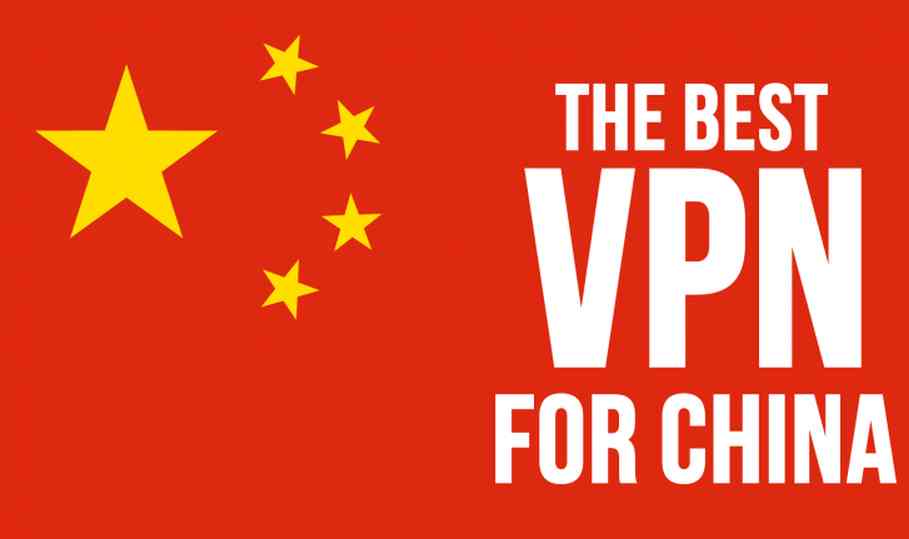Traveling to China? Learn why you should bring a VPN

This is a guest post by Michael Gargiulo, CEO at VPN.com. The company helps millions of consumers and businesses filter hundreds of VPNs to find the right VPN for them.
If there’s one government that has done more to help boost sales across the entire VPN industry around the globe, it’s China. Ever since the country first implemented their now-infamous Great Firewall of China back in 2008, both visitors to the country and citizens within the country have done everything they can to get around its draconian rules and content blocks.
But what are the exact reasons why you should use a VPN in China, and what can be done to get around the Great Firewall in a pinch when you’re travelling to the country or just stopping in on a layover?
Can You Still Use a VPN in China?
One of the first questions many people rely on this topic is: does a VPN even still work in China? And the answer is; well, kind of.
On the whole, it depends on the VPN provider you go with that determines whether or not your connection will remain encrypted past the Great Firewall. Since the Great Firewall became an issue for Internet users in the country, many VPN companies have been working tirelessly to provide encryption techniques and connection tunneling protocols that can fool the Firewall into thinking a protected connection is the same as any other traffic travelling over the wires.
Major providers have both the resources and the motivation to keep their services active in China. The catch is that while they are still technically not approved as authorized Chinese VPN services or based in China, that does not stop them marketing or selling them VPNs to Chinese citizens or visitors outside the country.
This also goes for any VPN companies that would attempt to incorporate within Chinese borders. These efforts are strictly forbidden by the government, with the 2017 story of a man running a VPN company in China sentenced to five years in prison for even making an attempt.
What is the Chinese Policy on VPN Usage?
The larger misconception at work when it comes to the usage of VPNs in China doesn’t relate so much to whether or not VPNs work in the country, but whether or not it’s legal to use them in the first place.
The current workaround here is that for the time being as of early 2018, China will allow some companies to run their VPNs in the country as long as they “register” with the government beforehand. What this registration process entails continues to be a closely guarded secret, though it’s widely suspected that registering your VPN company with the Chinese authorities essentially means handing them a backdoor code to your logs.
This means that even though a VPN company’s customers may be able to keep identifying information like their IP address secret from the sites they visit and domains they interact with, their traffic will still be logged and thrown in a database controlled by the Chinese government. This has made it so basically no VPN worth their salt on the privacy front would even consider operating in China, and many of the top companies still prefer to house their headquarters in privacy havens like Panama, the Cayman Islands, and Switzerland.
These restrictions make China home to some of the toughest internet censorship and privacy regulations and policies in the world.
What Sites are Banned in China?
Currently, many of the world’s most popular social media and content sites are banned China’s Great Firewall. Some suspect these sites are banned for a multitude of reasons including the government’s inability to regulate what content is or isn’t displayed on them, but others have suggested it might be possible that the government is working with the Chinese-based competitors to these sites in order to funnel Chinese users into Chinese-owned products exclusively (though this is still based more on speculation than anything else).
The list includes:
● Facebook
● Youtube
● Instagram
● Tinder
● Snapchat
● Dropbox
● Skype
● WhatsApp
● Most non-Chinese sponsored news media
● Twitter
● The complete suite of Google services
For many of us, this list encompasses 90% of our daily internet usage, which can provide quite the culture shock if all of them are taken away once you touch down on the Chinese homeland.
What About Mobile?
Not only that, but if you use an Android phone or tablet to do most of your browsing, the device will essentially be crippled due to its heavy reliance on a stable connection back to Google’s servers. Again, if the Great Firewall detects any traffic headed Google’s way, it’s effectively shut down before it can even make it off the mainland.
Luckily for iOS users, Apple has worked out several agreements with the Chinese government that allows them to operate in a more restricted fashion. The iTunes App Store is technically live, but the apps that Chinese-based users are able to download are far more limited than what you would see elsewhere in the world.
In this same vein, almost all major non-government approved VPN applications won’t show up in the app store, so make sure you download and install the provider’s app of your choosing before you enter the country’s borders.
What VPN Should You Use in China?
There are quite literally hundreds of VPNs that currently claim to work in China, and if we had any recommendations to make it would be to go with a providers that offers servers that are at least close to where you plan on travelling to in order to minimize speed loss.
There are a huge number of providers that, while not allowed to operate servers within the Chinese mainland, still do support servers in Hong Kong. For many travellers this will be the closest node available, through others that can still work without affecting your speeds too significantly include Singapore, Japan, and Taiwan.
Wrap Up
And that’s it! From the name the Great Firewall of China can seem like a scary and foreboding presence, but as long as you have a solid VPN provider and subscription to their services tucked away in your back pocket, you can still browse all your favorite websites and watch any content you like with the knowledge that your traffic, identity, and online activity will all be secured behind an encrypted wall of solid protection.
Post Written by Michael Gargiulo, CEO at VPN.com. We help millions of consumers and businesses filter hundreds of VPNs to find the right VPN for them.


